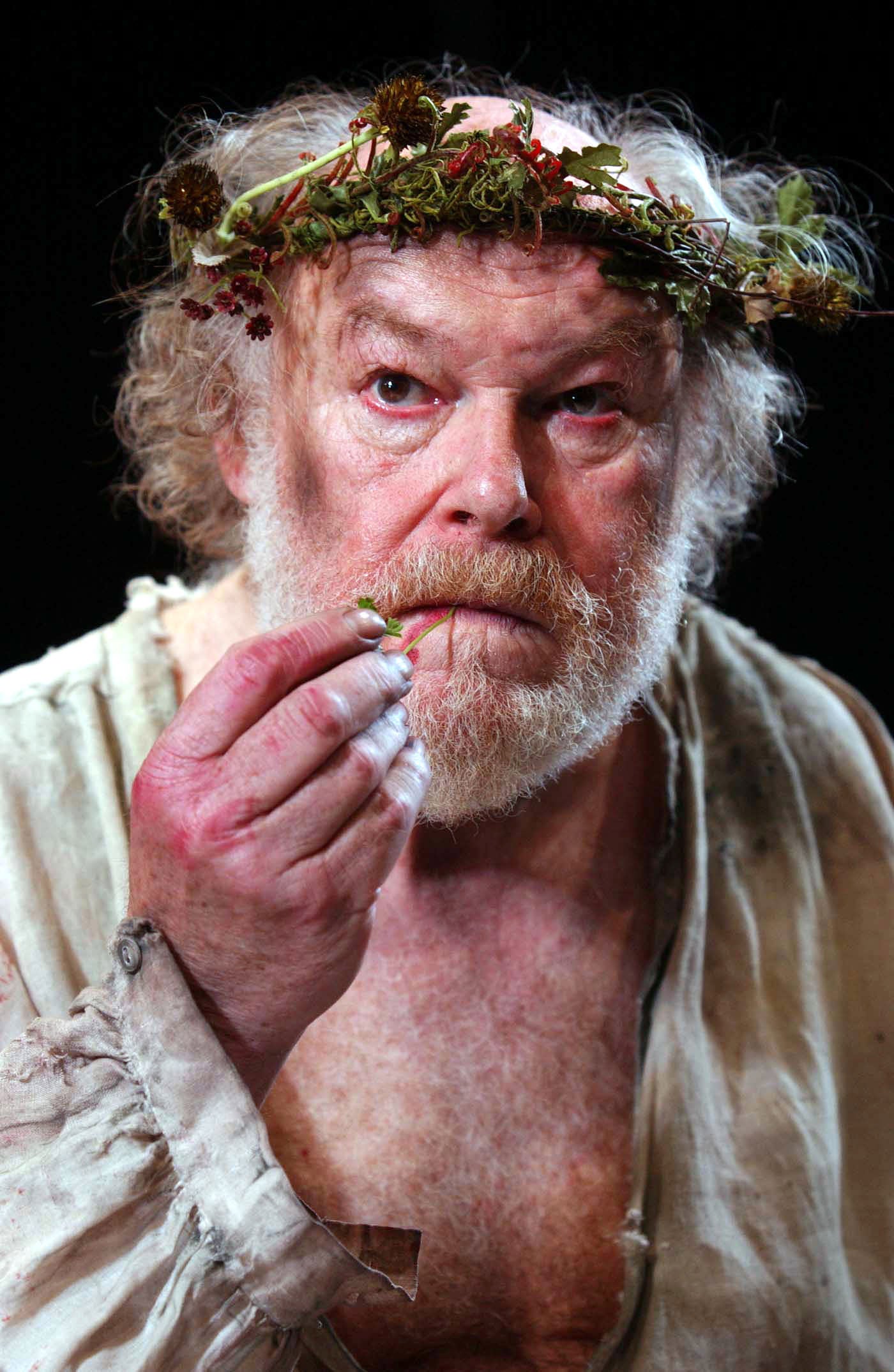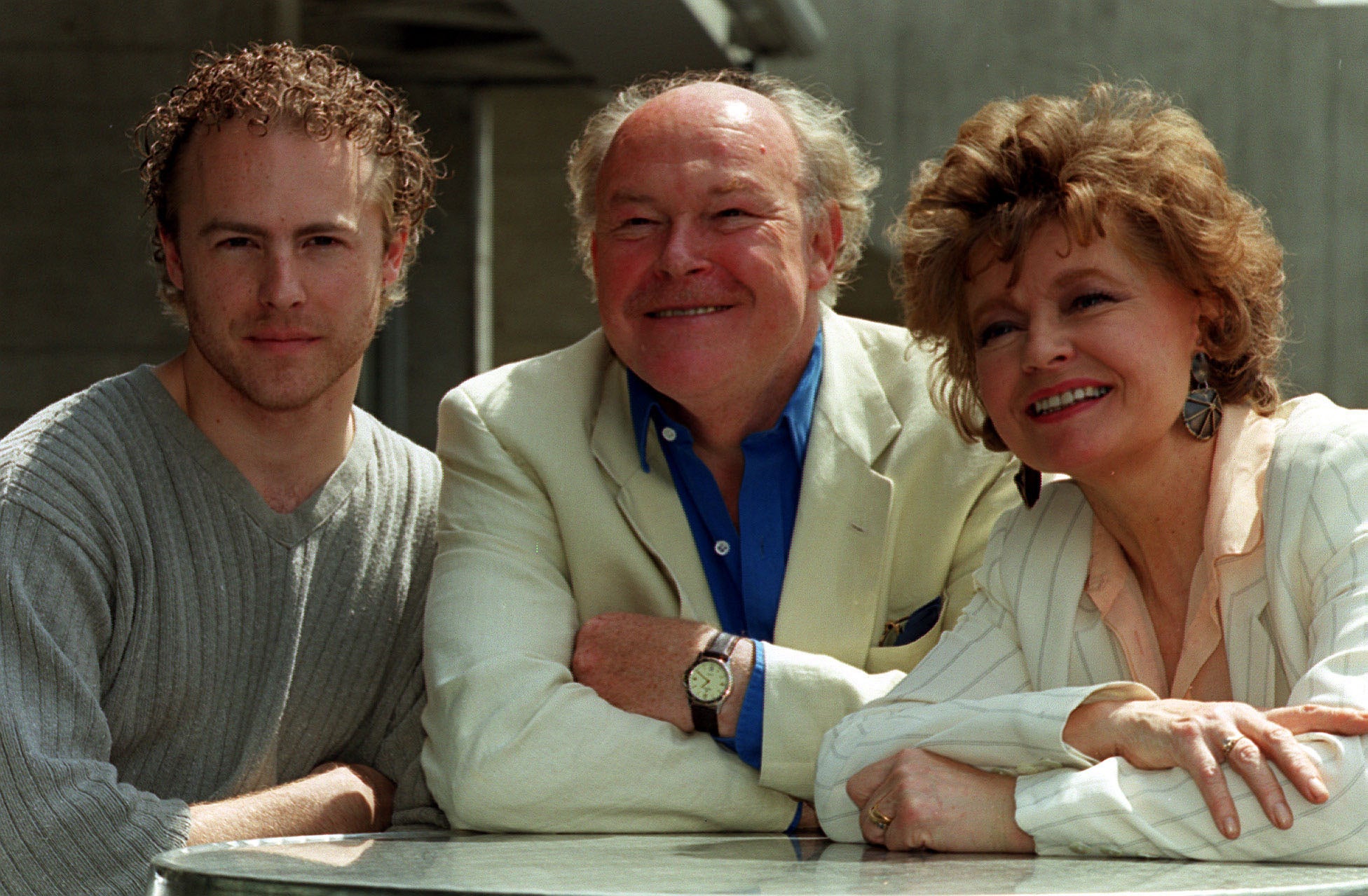Timothy West: Acclaimed actor who shone on screen and stage
A towering presence on stage and screen who was equally adept in comedy roles such as Bradley Hardacre in ‘Brass’
Your support helps us to tell the story
From reproductive rights to climate change to Big Tech, The Independent is on the ground when the story is developing. Whether it's investigating the financials of Elon Musk's pro-Trump PAC or producing our latest documentary, 'The A Word', which shines a light on the American women fighting for reproductive rights, we know how important it is to parse out the facts from the messaging.
At such a critical moment in US history, we need reporters on the ground. Your donation allows us to keep sending journalists to speak to both sides of the story.
The Independent is trusted by Americans across the entire political spectrum. And unlike many other quality news outlets, we choose not to lock Americans out of our reporting and analysis with paywalls. We believe quality journalism should be available to everyone, paid for by those who can afford it.
Your support makes all the difference.Switching effortlessly from stage to screen and drama to comedy, Timothy West, who has died aged 90, was a remarkably prolific actor over seven decades.
Some of his most acclaimed performances were in Shakespearean productions, but he had a range and versatility that extended beyond the classics.
West’s tour de force came when he brought his towering presence to the title role of Edward the Seventh (1975), ITV’s 13-part account of the life of Queen Victoria’s son “Bertie”, who spent 59 years waiting to ascend the throne and was recorded by history as a bully and philanderer.
The drama, with West’s sympathetic portrayal of Edward from the age of 23, made him a household name. “I felt very warmly towards this somewhat marginalised monarch,” he wrote in his 2001 autobiography, A Moment Towards the End of the Play. “He had a pretty awful life, really.”
In 1979, after acting as the scheming Cardinal Wolsey in Henry VIII, West played another 20th-century historical figure, Winston Churchill, in Churchill and the Generals, aided by his physical resemblance to the wartime leader – with added prosthetic nose and ears, and blue contact lenses.
As in many of the roles he took, his performance transcended the stuffiness to which period dramas are prone, and moved one reviewer to write that the television film was “intermittently moving and fun”.

He played Churchill again in the 1984 miniseries The Last Bastion and the 1995 TV movie Hiroshima.
West turned to classic literature to take the role of obnoxious, hard-hearted mill owner Josiah Bounderby in Arthur Hopcraft’s gritty four-part adaptation of Dickens’s Hard Times (1977) for Granada Television.
Later, he would get to parody such industrial melodramas in the sitcom Brass, taking the role of magnate Bradley Hardacre, with the series running on ITV from 1983-4 before being revived on Channel 4 in 1990.
The quirky role of flamboyant conductor Sir Thomas Beecham in Beecham (1990), an adaptation of Caryl Brahms and Ned Sherrin’s witty play (which West had performed on the West End stage a decade earlier), was another memorable entry in his television CV.
Timothy Lancaster West was born in Bradford, West Yorkshire, in 1934 to actors Olive Carleton-Crowe and Lockwood West, who was appearing there on tour.
With his parents moving around, he attended 11 different schools, including Bristol Grammar. In that city, he enjoyed watching plays at the Little Theatre.
Moving to London, West studied at the John Lyon School, Harrow, and Regent Street Polytechnic (now the University of Westminster), where he directed and acted in plays. He was also a regular visitor to the Old Vic and Sadler’s Wells.

On leaving college, he spent six months as box-office manager at Frinton Summer Theatre in Essex.
While working as a sales assistant at Partridge & Cooper, a Holborn office furniture company, then as a quality control engineer in EMI’s recorded tapes department, he acted with amateur groups such as the Taverners.
In 1956, West became an assistant stage manager at Wimbledon Theatre, where he made his professional acting debut as the farmer in Summertime, and married Jacqueline Grafton, who as Jacqueline Boyer had played the lisping Violet Elizabeth Bott in the radio series Just William. However, the marriage ended in divorce five years later.
From Wimbledon, West moved to repertory companies in Newquay, Hull and Salisbury. Then, in 1959, he made his first West End appearance, at the Piccadilly Theatre as the bookmaker’s runner Talky in Caught Napping. He followed it with the roles of the informer in The Life of Galileo (Mermaid Theatre, 1960) and Hubert in Gentle Jack (Queen’s Theatre, 1963).
In the mid-1960s, valuable experience in the classics was gained with the Royal Shakespeare Company at the Aldwych Theatre, London, and Stratford-upon-Avon, when West progressed to parts such as Sir Nathaniel in Love’s Labour’s Lost, Tubal in The Merchant of Venice and Lord Lucius in Timon of Athens.

West remained a prolific stage actor over the next three decades. He particularly enjoyed touring, including productions such as the farce Simple Spymen (1961, as Colonel Gray-Balding), and many Prospect Theatre Company plays, including The Tempest (1966, as Prospero), Boswell’s Life of Johnson (1970, as Samuel Johnson) and King Lear (1971, in the title role).
“I get out and about, explore the local countryside,” he said. “I love the fact that you’re playing to the same people in the evening who you’ve seen in Sainsbury’s in the morning. There is always a strong sense of community that you don’t get in the West End.”
Indeed, West was artistic director of the Forum Theatre, Billingham, for the 1973 spring season, attracting actors such as Pete Postlethwaite and Julian Glover.
However, he was back in London, at the Old Vic – where he was artistic director from 1980 to 1981 – to play Claudius in Hamlet (1977), Shylock in The Merchant of Venice (1980), Falstaff in Henry IV Part I and PartII (1997) and the title role in King Lear (2003). In the West End, he played Andrew in It’s Ralph (Comedy Theatre, 1991).
Television came West’s way when, in 1961, his father recommended him to a producer for the role of Charles Hayter in a four-part BBC adaptation of Jane Austen’s Persuasion.
That year, he also met Prunella Scales when they were both due to appear in the television play She Died Young. Although it was postponed because of an electricians’ strike and he was then unavailable for the broadcast, they resumed their friendship while acting in different Oxford theatres a month later, subsequently marrying in 1963.

Meanwhile, West was getting more small parts on television, including a 1964 guest role in The Marriage Lines, the sitcom in which Scales starred with Richard Briers. He was a regular as Dr Howard Agister in the supernatural thriller serial Witch Hunt (1967) and the sadistic Lennox in the underworld drama Big Breadwinner Hog (1969).
In 1970, he gave TV audiences a taste of what was to come when he played Young Mortimer in Edward II and Bolingbroke in The Tragedy of King Richard II, both opposite Ian McKellen, and in productions he had appeared in for the Prospect Theatre Company.
For two decades, he became almost typecast on the small screen in the classics and period dramas. Alongside his Shakespearean roles, he played Horatio Bottomley in The Edwardians (1972), Porfiry Petrovich in Crime and Punishment (1979), Mr Bumble in Oliver Twist (1982) and William Russell in Florence Nightingale (1985).
He also took the title roles in TV’s Boswell’s Life of Johnson (1971), The Good Doctor Bodkin-Adams (1986), Blore MP (1989) and Martin Luther (2002), as well as playing Mikhail Gorbachev in Breakthrough at Reykjavik (1987), the German-Russian revolutionary Parvus in Lenin: The Train (1988) and Lord Reith for Channel 4’s Without Walls series (1993).
At times, West found his television portrayals of real people “a millstone round my neck”, but he bounced back to play fictional roles such as double-glazing company boss Harry King in Harry’s Kingdom (1987), DCI Jimmy McKinnes in Framed (1992) and volatile Andrew Oldfield in the comedy Bedtime (2001-3).

Although he made less impact in films, West brought authority to the roles of Dr Botkin in Nicholas and Alexandra (1971), the French police chief Berthier in The Day of the Jackal (1973), the inn landlord Mr Tow-Wouse in Joseph Andrews (1977), the detective trying to track down the missing crime mystery author in Agatha (1979), Captain De Wet in Cry Freedom (1987) and PW Botha in Endgame (2009).
Acting in soaps opera for the first time, he had a two-week run in 2013 in Coronation Street as Gloria Price’s wealthy fiance, Eric Babbage, who was drawn to her granddaughter, Eva, but broke both their hearts by dying suddenly.
The following year began a longer, 15-month run in EastEnders, playing Stan Carter, the manipulative grandfather of Queen Vic landlord Mick, which also ended in death.
His last regular role was as Jeremy, the ineffectual but affectionate father of Anne Lister (Suranne Jones), in Gentleman Jack (2019-2022), writer Sally Wainwright’s popular drama about the 19th-century lesbian and entrepreneur.
West and Scales were narrow-boat enthusiasts and owners who enjoyed exploring the waterways of Britain and beyond, presenting ten series of Great Canal Journeys from 2014-2020.
Lifelong Labour supporters, the couple regularly turned out in public for the party during general election campaigns.
West was made CBE in 1984.
He is survived by Scales and their two sons, Samuel, an actor, and Joe, a teacher, as well as Juliet, a daughter from his first marriage.
Timothy West, actor, born 20 October 1934, died 12 November 2024

Join our commenting forum
Join thought-provoking conversations, follow other Independent readers and see their replies
Comments